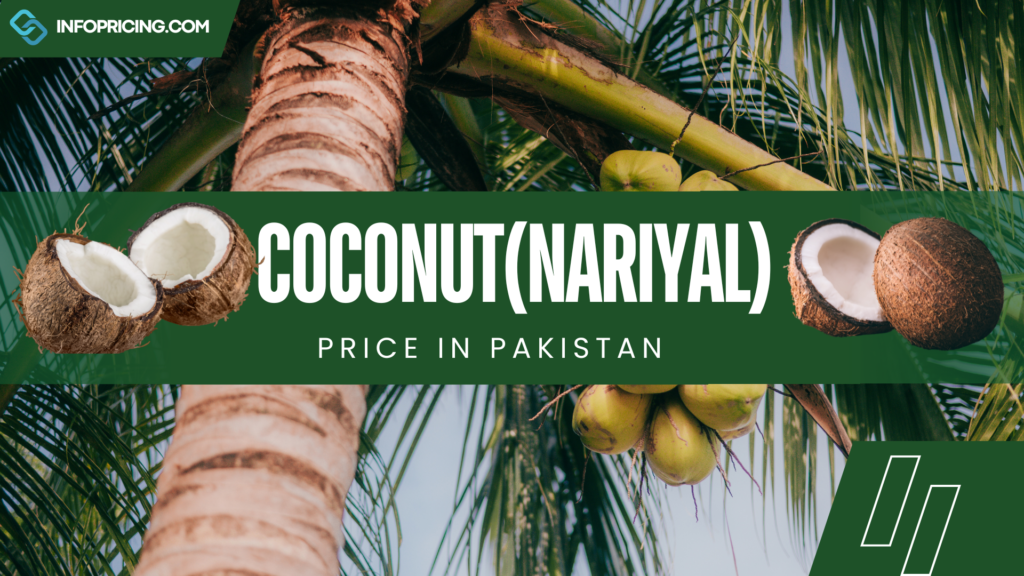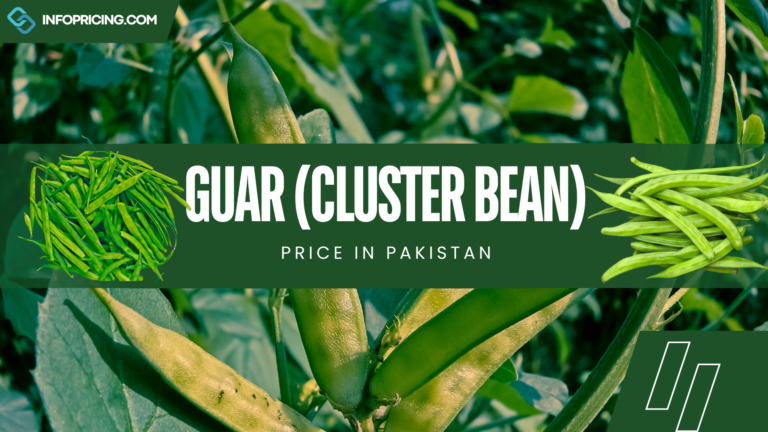Coconut Price In Pakistan |22 January 2025|Nariyal Price in Pakistan
As of January 2025, the Today Coconut Price In Pakistan is between Rs. 280-360 Per Piece, depending on the quality, size, and variety.

IN January 2025 |
Coconut Price In Pakistan
| JANUARY | Nariyal RATE 1 Peice |
|---|---|
| 1st January 2025 | Rs. 280-360 |
| 2nd January 2025 | Rs. 280-360 |
| 3rd January 2025 | Rs. 280-360 |
| 4 January 2025 | Rs. 280-360 |
| 5 January 2025 | Rs. 280-360 |
| 6 January 2025 | Rs. 280-360 |
| 7 January 2025 | Rs. 280-360 |
| 8 January 2025 | Rs. 280-360 |
| 9 January 2025 | Rs. 280-360 |
| 10 January 2025 | Rs. 280-360 |
| 11 January 2025 | Rs. 280-360 |
| 12 January 2025 | Rs. 280-360 |
| 13 January 2025 | Rs. 280-360 |
| 14 January 2025 | Rs. 280-360 |
| 15 January 2025 | Rs. 280-360 |
| 16 January 2025 | Rs. 280-360 |
| 17 January 2025 | Rs. 280-360 |
| 18 January 2025 | Rs. 280-360 |
| 19 January 2025 | Rs. 280-360 |
| 20 January 2025 | Rs. 280-360 |
| 21 January 2025 | Rs. 280-360 |
| 22 January 2025 | Rs. 280-360 |
| 23 January 2025 | |
| 24 January 2025 | |
| 25 January 2025 | |
| 26 January 2025 | |
| 27 January 2025 | |
| 28 January 2025 | |
| 29 January 2025 | |
| 30 January 2025 | |
| 31 January 2025 |
Coconut: A Valuable Crop in Pakistan’s Coastal Regions
Coconut (Cocos Nucifera) has been cultivated along Pakistan’s coast for centuries. Coconut is a fruit that Pakistanis love for its nutritional value. Its cultivation also provides a lucrative income source for farmers. This article will give a comprehensive overview on coconut cultivation in Pakistan. It will cover topics ranging from general information to harvest management.
General Information
Coconut is a member in the Arecaceae and is known for being versatile and having many uses. Coconut is rich in fiber, protein and healthy fats. It’s a healthy and nutritious snack.
Climate
Coconut is a tropical tree that thrives in humid and warm climates. Coconut is grown in Pakistan’s coastal regions, Sindh and Balochistan. Temperatures range from 20degC up to 35degC. Coconut cultivation is best done between 25degC to 30degC.
Soil
Coconuts can grow in a variety of soils. However, they prefer fertile, well-drained soils that have a pH range between 6.0 and 7. The soil should have a high organic matter content and a good capacity to hold water.
Popular Varieties and Their Yield
In Pakistan, coconuts are grown in several varieties including:
- West Coast Tall: Known for high yields (100-150 coconuts/tree), and sweet, tender coconut waters.
- Dwarf: Known for high yields (80-120 coconuts/tree), compact growth habits, and a compact growth habit.
- Malayan Yellow Dwarf: Known for high yields (60-100 coconuts/tree), and sweet, flavorful meat.
Land Preparation
Before planting coconuts, the land must be thoroughly prepared. The soil should be plowed down to a depth between 30-40 cm. This is followed by manuring and leveling.
Seed
Coconut is usually propagated by seeds. The seeds should be planted in a nursery and the seedlings transplanted into the field after 6-12 months.
Sowing
- Sowing Time: The best time to sow coconut seeds is between February and April.
- Spacing: The typical spacing for coconut trees is 9-12 meters.
- Sowing depth: Coconut seeds are typically sown at a depth of 10-15 cm.
- Sowing Method: Coconut seeds can either be sown in the field directly or in a nursery.
Intercrops
Coconut orchards can benefit from intercropping to increase soil productivity and reduce soil erosiveness. Intercrops that are suitable include vegetables, herbs, and legumes.
Fertilizer
Coconut trees need regular fertilization in order to maintain their productivity. A balanced fertilizer (10-10-10 NPK, for example) should be applied every year, followed by a test of the soil to determine the tree’s nutrient needs.
Weed Control
To reduce competition for nutrients and water, it is important to control weeds in coconut orchards. Weeds are controlled by mulching, herbicides or manual removal.
Irrigation
Coconut trees need regular irrigation, particularly during the fruiting phase. During the summer, trees should be watered every 7-10 days.
Plant Protection
Coconut trees are susceptible for several pests and diseases including coconut mites, root rot, and coconut beetles. Regular monitoring and integrated pest control practices can help control these diseases and pests.
Harvesting
Coconut fruit is harvested between 11-12 month after flowering depending on the variety. The fruit should only be picked when it is mature, as the fruit does not ripen once harvested.
Post-Harvest
Coconut fruit should be handled with care after harvesting to avoid damage. To maintain the fruit’s quality, it should be kept in a cool and dry place.
Coconut is a valuable crop for Pakistan’s coastal areas, providing numerous benefits to farmers, consumers and the environment. Following the guidelines in this article will help farmers maximize their coconut yields and improve their fruit quality. They can also increase their profitability.
Check More prices of Fruits






